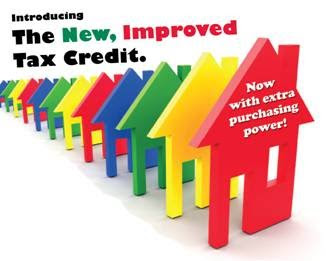Last month Pending US home sales skyrocketed to their highest number in 7 years, a sure sign that the bottom is forming and that bargain seekers have arrived. The National Association of Realtors reported that its seasonally adjusted index of sales contracts signed (the Pending Home Sales Index) jumped 6.7% to 90.3, well ahead of analysts' expectations. Lawrence Yun, NAR chief economist, said buyers have responded to favorable market conditions. "Housing affordability conditions have been at historic highs, but now the $8,000 first-time buyer tax credit is beginning to impact the market," he said. "Since first-time buyers must finalize their purchase by November 30 to get the credit, we expect greater activity in the months ahead, and that should spark more sales by repeat buyers." Santa Clarita Home Value Santa Clarita CA Real Estate Agent | Santa Clarita CA Homes for Sale Weichert, Realtors - Hoshaw & Associates David Hoshaw, Broker, CRS, GRI, e-P...

Comments
Post a Comment